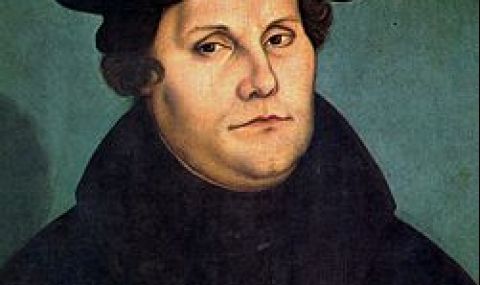„95 Theses or Disputation Concerning the Power and Efficacy of Indulgences” is a text hung by the German theologian Martin Luther in the churchyard of Wittenberg on October 31, 1517. This action is believed to have started a discussion about the Roman Catholic Church's role in penance, the role of popes, and the practice of selling indulgences. The publication of the 95 theses accelerated the split in the church, the beginning of the Reformation and the separation of Lutheranism as a separate current in Christianity.
Roman Pope Leo X introduced the practice of indulgences on October 18, 1517, in order to cover the costs of the construction of the “Saint Peter” in Rome. Dissatisfaction with Rome's policy and practice of indulgences had been seen earlier, but Doctor of Theology and Augustinian monk Martin Luther raised questions about the theological aspect of the practice. An essential role in the publication of theses was played by the Dominican monk Johann Teschel, who shamelessly traded indulgences in Wittenberg.
His refusal to renounce them at the request of Pope Leo X in 1520 and Emperor Charles V during the Diet of Worms in 1521 led to his excommunication by the Pope and outlawing by the Emperor.
Luther preached that salvation is not earned by good works, but is received as a free gift of God's grace through faith in Jesus Christ as the redeemer of sins. His theology challenged the authority of the Pope of the Roman Catholic Church, insisting that the Bible was the only source of divinely revealed knowledge. He also opposes the exclusive mediation of the clergy between the laity and God, considering all baptized Christians to be priests. The followers of Luther's teachings are called Lutherans.
Martin Luther translated the Bible into spoken German, instead of the traditional Latin version, making it more widely available and having a huge impact on the church and the entire German culture. The publication of Luther's Bible promoted the formation of a standard form of the German language, introduced some principles in translation theory, and influenced subsequent translations of the Bible into other spoken languages. Luther's hymns influenced the development of church singing, and his marriage to Katharina von Bora became a model for the practice of Protestant priests marrying, contrary to Catholic rules.
Toward the end of his life, Martin Luther took extremely anti-Semitic positions, advocating the demolition of Jewish homes, burning of synagogues, confiscation of their money, and curtailment of their liberties. These views make Luther a highly controversial figure for many modern historians and theologians.
